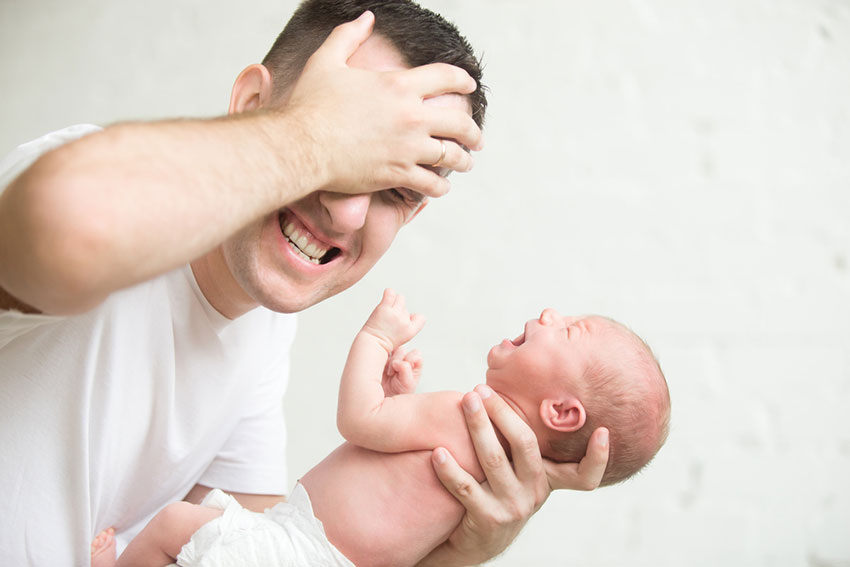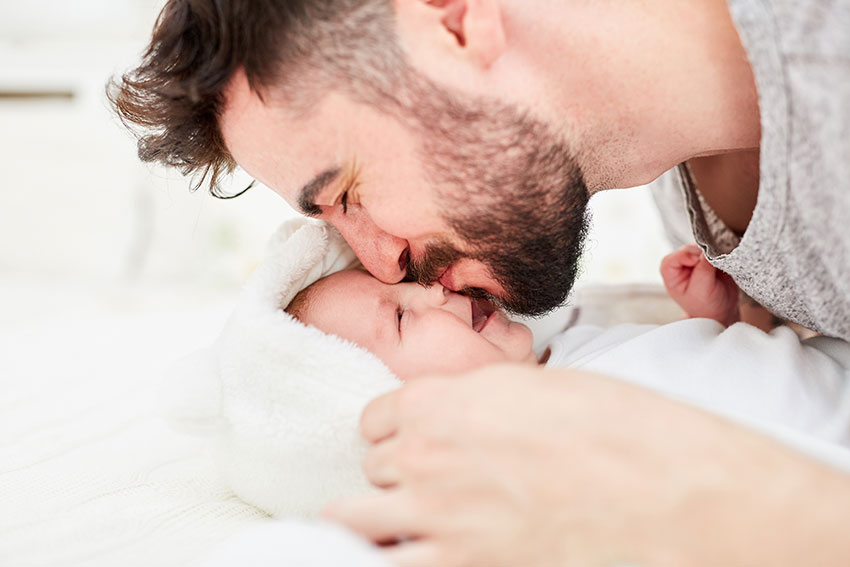Postpartum depression, also known as postnatal depression, is a kind of depression primarily known to occur in women post-childbirth. However, most new fathers are also highly susceptible to this form of depression but it is often overlooked for a substantial period of time. While commonly occurring between a period of 4 to 6 weeks post-childbirth, postpartum depression signs are sometimes not manifested for months after the child is born, making it difficult to diagnose early and treat.
What do New Fathers Have to Say?
A study on postpartum depression in men by the University of Nevada, Las Vegas in 2019 found six different themes in relation to the mental health issue after thorough research and interviews with new fathers. These themes included –
Need for Education – Research suggests that most fathers were unaware that they could be a victim of postpartum depression and the magnitude to which it affects others like them. Similarly, women who witnessed their husbands going through postpartum depression had no knowledge of what it was and how to help. Research also showed that these men struggled with finding help as doctors and therapists would not have this conversation with new fathers and whatever other postpartum depression help resources existed were solely focused on women.
Gender Expectations and Stereotypes – Most new fathers felt the pressure to do what is socially expected of men and play the role of the “tough guy,” which would further suppress as well as heighten their feelings of depression and anxiety.
Repressing Feelings – The fear of coming across as weak and ridiculous to their wives, who are considered primary caregivers of the baby, most men would suppress their true feelings.

Feelings that overwhelm – Confusion, anxiety, helplessness, fatigue, exhaustion, loneliness and a sense of being trapped are all common feelings faced by those who suffer from postpartum depression. However, most men find it a real struggle to express these emotions; their stress is further exacerbated by a lack of sleep, which is common for new parents, further making a father irritable and agitated towards the baby.
Resentment for the newborn – The research found that while some of the fathers showed excitement and cheer for their newborn, others felts feelings of resentment and anger towards the baby. “Some of the fathers even talked about suppressing urges to hurt the baby or themselves,” claims the study.
Experience of Neglect – Most new fathers felt like they were neglected, ignored, and forgotten about, not just by their partners but also the healthcare system, and the rest of society.
How to Help or Get Better?
Understand and accept the symptoms
Like any form of depression, detecting symptoms and being mindful is extremely essential. Fathers that suffer from postpartum depression project a variety of symptoms. These symptoms include feelings of sadness, anger, irritability, shortness of breath, loss of interest towards otherwise common activities, substance abuse, heart palpitations and more. Sometimes men will also get overly involved in work and other activities to escape their emotions and cope. Always keep an eye out for such symptoms in new fathers and observe from a distance. Remember to not interfere too quickly or that might lead to a suppression of feelings.
Ask for help

Asking for help is the single most important method to overcome your depression. Fathers who want to ask for help have to break the gender stereotypes and feelings of shame and weakness, built through impractical teachings from society, and seek the help and support they require. Medical assistance and therapy are essential to overcoming postpartum depression, so as to not be a threat to yourself, your family, and your child. Developing a good bond with your child is essential. Talk therapy combined with medication has shown great promise in treating depression in fathers. However, it is important that the help you receive is from a licensed medical professional.
Be patient and kind

New fathers who suffer from postpartum depression undergo a lot of stress. Whether you’re a father who is suffering or a loved one helping a father overcome, remember that is important to be patient and kind. Postpartum depression develops due to a number of persistent threats; this in itself is taxing to the father, his family, and the newborn child. Some of these threats include the inability to develop an attachment with the child, envy over the strong bond between mother and child, lack of good social support, external stressors such as finances and work, all are contributing factors that last for a substantial period of time. It takes time and effort to overcome these challenges and rushing does not help under any circumstance. So, treat yourself with love and kindness and believe that you will overcome this depression.

Fathers listen up! If you’re suffering from postpartum depression or anticipating your new baby’s arrival, remember that feeling depressed and overwhelmed comes with being a parent. It does not make you a bad father, or a bad person, it only makes you a human being who has just assumed responsibility for a little life. Break away the shackles of shame, fear, and unmanliness that society has set for you and remember that this is your child and you are the father. Nothing else matters; ask for help, confide in those that care, and take it one step at a time!
